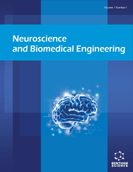Abstract
Subjective cognitive decline (SCD) is common in older people. It is an upsetting symptom in which seemingly healthy individuals report self-perceived decline in cognition function, usually memory, without objective evidence on formal neuropsychological tests. There is rapidly growing evidence that SCD may be an early symptomatic sign of the first effects of Alzheimer's disease (AD) pathology on cognitive functioning between complete compensation and incipient decline. In the future, performing effective treatment at this stage would likely preserve function at a high level. Thus, the valid application of SCD as an effective tool for the early detection of AD dementia would therefore be of significant benefit.
Keywords: Alzheimer's disease, mild cognitive impairment, preclinical alzheimer's disease, subjective cognitive decline.
Graphical Abstract
 11
11

